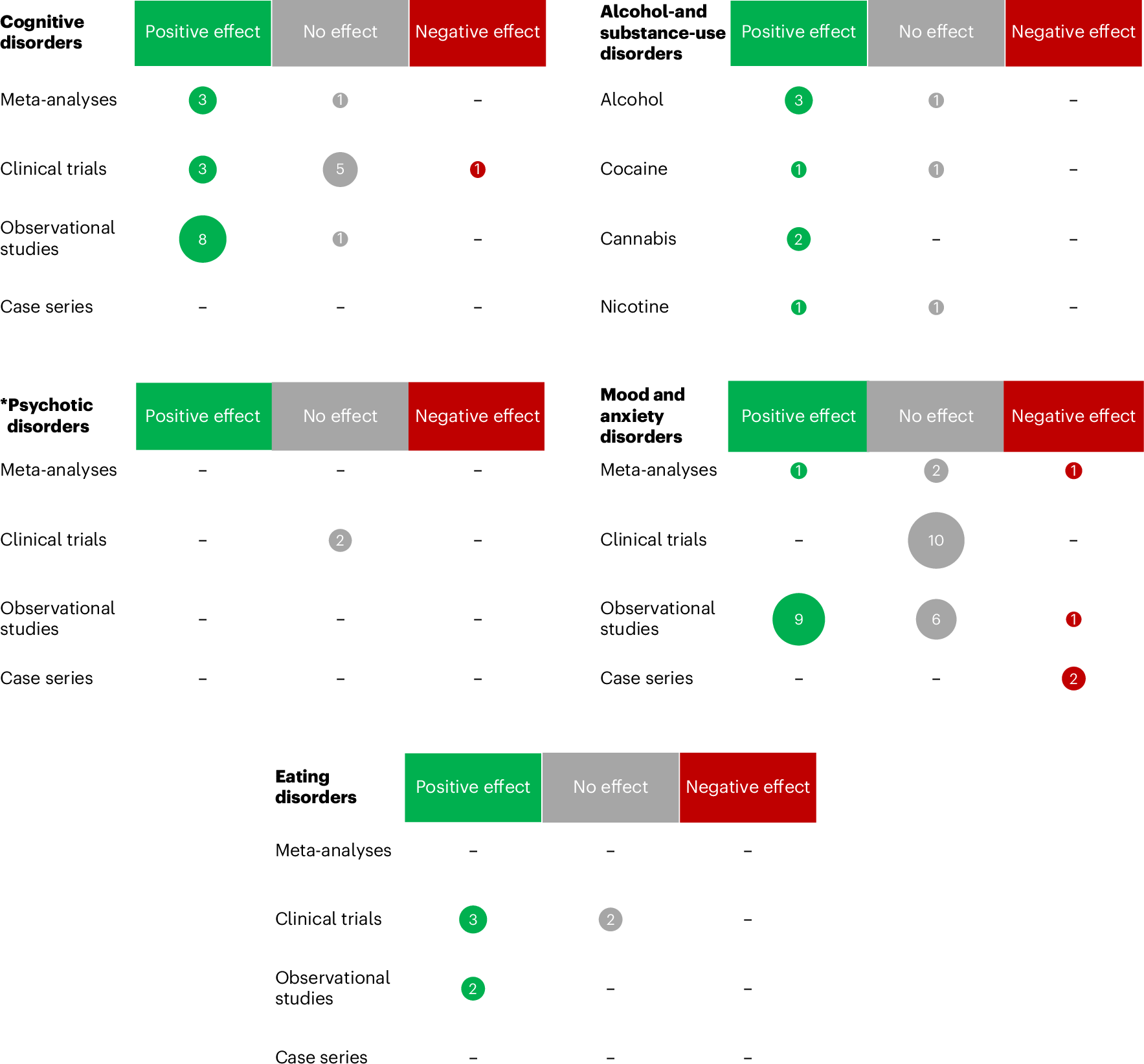Losing a large amount of weight — particularly rapidly or beyond what you might have achieved without medication — can produce powerful psychological shifts. When GLP-1 (and related) medications assist in that change, emotional, cognitive, and social dynamics might evolve in unexpected ways. Learn about psychological impact of weight loss, body image changes, and when to seek professional support to maintain a healthy mindset during your weight-loss journey.
Important: This article is for educational purposes only and not intended as medical advice. Always work with a licensed healthcare provider before starting, stopping, or changing any medication.
Body image and self-esteem shifts
-
Many people experience boosted self-esteem and improved body image as their physical appearance changes. Reviews of weight-loss interventions (behavioral or medical) show consistent improvements in body image, self-confidence, and health-related quality of life concurrent with weight loss.
-
However, these gains aren’t guaranteed or uniform. Some individuals notice new dissatisfaction — for example, loose skin, shifting proportions, or residual body image expectations that don’t align with current reality.
Mood, anxiety, and emotional vulnerability
-
In treatment with GLP-1 receptor agonists, reports vary: most patients note improved mood or reduced depressive symptoms, while some others report worsening mood, anxiety, or insomnia.
-
GLP-1 medications have been flagged in observational and safety reviews for potential neuropsychiatric adverse events, including potential mood changes and emotional dysregulation.
-
Some cohort studies show mixed results: in the Health ABC study, long-term weight loss correlated with higher odds of depressed mood in certain populations; in others, weight loss did not uniformly improve depression.
-
Rapid weight loss itself can act as a psychological “stressor” — hormonal shifts, changes in reward pathways, identity change, and alteration in social roles all play a role.
Summary of clinical studies of GLP-1RAs for cognitive and mental disorders.

Green, positive effect/association; gray, no effect/association; red, negative effect/association; the area of each circle is proportional to the number of studies. The asterisk indicates that it does not include studies of metabolic effects of GLP-1RAs in people with psychotic disorders, which would not be in line with the psychiatric outcomes reported for all other disorders. (De Giorgi et al., 2025)
Figure Summary of Clinical Studies of GLP-1RAs for Cognitive and Mental Disorders:
- Mood/anxiety effects: Effects vary; some people experience improved mood or reduced depression, while others may notice little change or occasional mood side effects.
- Neuroprotective and cognitive benefits: Strong evidence from animal studies; some long-term human data suggest reduced dementia risk.
- Addiction-related effects: Animal studies show reduced reward-seeking behaviors; early human research is promising but limited.
- Psychotic Disorders: Mainly helps manage weight and metabolic side effects from antipsychotics; direct effects on thinking or symptoms are unclear.
- Eating disorders: Potential for reducing binge-eating behaviors; evidence for other disorders is lacking.
Social identity, relationships, and external reactions
-
The way friends, family, and society respond can shift: compliments, jealousy, changed expectations, or perceived judgments may affect your emotional experience.
-
Moving from being “the heavier person” to “someone who used a drug to lose weight” can feel disorienting — you may wrestle with identity and social narrative adjustment.
How to Adjust to Emotional Changes After Weight Loss
Navigating the emotional terrain of weight loss requires both awareness and strategy. Here are practical ways to manage:
-
Normalize the transition emotional experience
Recognize that ups and downs are typical. Just as your body adapts physiologically, your mind adapts psychologically. -
Track your mood and mental health symptoms
Use journaling, mood apps, or check-ins to monitor signs like anxiety, sadness, irritability, or changes in sleeping patterns. -
Lean into social support
Join support groups (in person or online), or partner with others on weight journeys. Shared experiences reduce isolation and provide perspective. -
Practice emotional regulation skills
Mindfulness, breathwork, journaling, or cognitive-behavioral tools can help you manage stress arising from identity shifts or body image changes. -
Gradual adjustments
Let transitions (to new clothing sizes, social roles, self-image) evolve slowly. Avoid rushing into radical changes before emotionally settling. -
Check expectations
Before starting GLP-1 treatment, set realistic mental expectations: weight change is one dimension of transformation — not the sum of your identity.
The Role of Self-Compassion and Mindset During Weight Loss with GLP-1
Your internal dialogue and mindset can profoundly shape your psychological experience.
-
Self-compassion: Treat yourself kindly when setbacks occur. “I’m doing my best under changing circumstances” is a healthier lens than perfectionism.
-
Growth mindset: View challenges (plateaus, side effects, emotional discomfort) as opportunities to learn rather than failures.
-
Identity flexibility: Recognize that you’re more than your weight or body shape. Cultivate values, hobbies, relationships, and goals outside of weight.
-
Celebrate non-scale wins: Focus on energy, mobility, mood, and relationships — not just pounds lost.
Addressing Body Image Issues with GLP-1 Weight Loss
When your body changes faster than your mental image, friction often appears. Here’s how to work through it:
-
Mirror work and body scanning: Gently observe your body daily (or weekly) — noticing what feels familiar and what feels new — without judgment.
-
Mindful appearance practices: Use slow dressing, posture awareness, and soft visual acceptance rather than demanding ideal changes.
-
Therapeutic techniques: Body positivity, mirror desensitization, or working with a therapist on body image issues can help recalibrate internal standards.
-
Focus on function, not just form: Celebrate what your body can do now (strength, stamina, health) rather than solely how it looks.
When to Seek Professional Mental Health Support During Weight Loss
While many psychological adjustments resolve with time, certain signs indicate you should reach out for help:
-
Persistent or worsening depression, anxiety, hopelessness, or thoughts of self-harm
-
Disordered eating behaviors emerging or worsening
-
Severe emotional distress interfering with daily functioning (work, relationships, sleep)
-
Identity confusion, severe body dysmorphia, or crisis around self-worth
-
Difficulty adapting to changing social or relational dynamics
In those cases, consider:
-
Finding a therapist trained in health psychology, body image, or eating disorders
-
Collaborating with your prescribing clinician to reassess dosage, side effects, or emotional risk
-
Integrative care (nutrition, movement, sleep, psychotherapy) to anchor mental and physical health
FDA-Approved GLP-1 Receptor Agonist Drugs
Active Ingredient: Semaglutide
Semaglutide is a GLP-1 receptor agonist only. It mimics the hormone GLP-1, which helps regulate blood sugar and appetite.
| Brand Name | Manufacturer | Route | FDA-Approved Use | FDA Approval Year |
|---|---|---|---|---|
| Ozempic | Novo Nordisk | Injectable (weekly) | Type 2 diabetes; Cardiovascular risk reduction | 2017 |
| Wegovy | Novo Nordisk | Injectable (weekly) | Chronic weight management | 2021 |
| Rybelsus | Novo Nordisk | Oral (daily tablet) | Type 2 diabetes | 2019 |
Active Ingredient: Tirzepatide
Tirzepatide is a dual agonist — it activates GLP-1 receptors and GIP (glucose-dependent insulinotropic polypeptide) receptors. The added GIP activity may enhance weight loss and blood sugar control compared to GLP-1–only drugs.
| Brand Name | Manufacturer | Route | FDA-Approved Use | FDA Approval Year |
|---|---|---|---|---|
| Mounjaro | Eli Lilly | Injectable (weekly) | Type 2 diabetes | 2022 |
| Zepbound | Eli Lilly | Injectable (weekly) | Chronic weight management | 2023 |
Get Personalized Support with Heally
Rapid weight loss with GLP-1 medications can affect your mood, body image, and social life. Heally clinicians can help you navigate these changes, manage side effects, and develop strategies to support both your physical and emotional well-being.
Schedule a free consultation today for personalized guidance tailored to your weight-loss journey.
Sources
- Nature Mental Health: An analysis on the role of glucagon-like peptide-1 receptor agonists in cognitive and mental health disorders
- ScienceDirect ELSEVIER: GLP-1 agonists and risk of suicidal thoughts and behaviours: Confound by indication once again? A narrative review
- PLOS One: Psychological Changes following Weight Loss in Overweight and Obese Adults: A Prospective Cohort Study
- PubMed Central: Neuropsychiatric adverse events associated with Glucagon-like peptide-1 receptor agonists: a pharmacovigilance analysis of the FDA Adverse Event Reporting System database
- ScienceDirect ELSEVIER: Psychological benefits of weight loss following behavioural and/or dietary weight loss interventions. A systematic research review
- PubMed Central: GLP-1 Receptor Agonists and Related Mental Health Issues; Insights from a Range of Social Media Platforms Using a Mixed-Methods Approach
- FDA Label: OZEMPIC (Semaglutide Injection) Medication Guide
- FDA Label: WEGOVY (Semaglutide Injection) Medication Guide
- FDA Label: RYBELSUS (Oral Semaglutide) Medication Guide
Important Medical Information and Disclaimers
Important Current Status Update for Tirzepatide: On March 19, 2025, the FDA ended enforcement discretion for compounded tirzepatide. Pharmacies may no longer legally compound tirzepatide in most cases, since the FDA confirmed that no drug shortage exists. Patients should use FDA-approved tirzepatide medications like Mounjaro® and Zepbound® unless a provider confirms a medical necessity. Compounding pharmacies do not receive FDA approval for their medications and may introduce different risks compared to FDA-approved drugs.
Medical Disclaimer
This article,“Psychological Effects of Significant Weight Loss,” is for educational purposes only and is not intended to replace professional medical advice, diagnosis, or treatment. Always seek the advice of a qualified healthcare provider regarding any questions you may have about a medical condition, medication, or treatment plan. Never ignore professional medical advice or delay seeking it because of something you have read here.
GLP-1 receptor agonists such as semaglutide (marketed under brand names Ozempic®, Wegovy®, and Rybelsus®) and the dual GIP/GLP-1 agonist tirzepatide (marketed under brand names Mounjaro® and Zepbound®) are FDA-approved prescription medications for specific uses in type 2 diabetes management and, in some cases, chronic weight management. These medications are not over-the-counter supplements and should be used only under the guidance of a licensed healthcare provider.
Compounded Drug Warning
The FDA has not approved compounded drugs and has issued safety alerts about dosing errors, product contamination, and other quality concerns. Compounded drugs are custom formulations made by pharmacies and may vary in quality, safety, and effectiveness, which can increase the risk of side effects or treatment failure. The FDA has warned against using these versions due to issues with incorrect ingredients, poor storage, or improper dosage. Always get medications from a licensed pharmacy with a valid prescription.
Individual Results May Vary
Responses to GLP-1 therapy can vary from person to person. Factors such as diet, physical activity, sleep quality, underlying medical conditions, other medications, and individual metabolism can all influence both side effects and overall results. Clinical trial outcomes may differ from real-world experiences.
Possible Side Effects of GLP-1 medications may include:
- Nausea
- Vomiting
- Diarrhea
- Constipation
- Stomach pain or discomfort
- Decreased appetite
- Indigestion or gas
- Redness, itching, or soreness at the injection site
Most side effects are mild to moderate and may improve as your body adjusts to treatment. If you experience severe or persistent symptoms, contact your healthcare provider promptly.
Boxed Warning (Thyroid C-Cell Tumor Risk)
GLP-1 receptor agonists, including semaglutide, carry an FDA boxed warning regarding the potential risk of thyroid C-cell tumors. Do not use if you or a family member has a history of medullary thyroid carcinoma (MTC) or multiple endocrine neoplasia syndrome type 2 (MEN 2).
When to Seek Immediate Medical Attention
Contact your healthcare provider or seek emergency care if you experience:
- Severe abdominal pain that does not go away
- Signs of an allergic reaction (rash, swelling, difficulty breathing)
- Symptoms of pancreatitis (severe abdominal pain, vomiting)
- Symptoms of severe dehydration (dizziness, confusion, rapid heartbeat)
FDA Adverse Event Reporting
To report medication side effects to the FDA, visit www.fda.gov/medwatch or call 1-800-FDA-1088. You may also contact the medication’s manufacturer directly.

